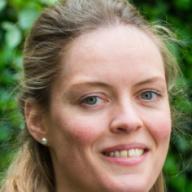 \
&
Contact us
\
&
Contact us
 \
&
Contact us
\
&
Contact us
The European Research Council (ERC) awards grants, through a challenging European competition, for excellent scientific research across all fields, initiated/driven by investigators. It thus supports ‘bottom-up’ research without predetermined priorities of a ground-breaking nature.
There are three types of grants which each support another phase in a researcher’s career, going from two years after the award of the PhD to an established research leader (Starting, Consolidator and Advanced grants). The Synergy grants address ambitious research problems with a group of two to four Principal Investigators (PIs) and their teams. The Proof of Concept grant is short-term complementary funding for recipients of the previous four main types of grants.
The 2025 work programme includes a call for each main frontier research grant, i.e. Starting, Consolidator, Advanced and Synergy Grant, plus a call for complementary funding for ERC Principal Investigators, i.e. the Proof of Concept Grant with two submission deadlines. The work programme contains also several other actions including public procurement, e.g. support to programme monitoring and evaluation, support to the Europe PMC initiative and assessment of the scientific impact of ERC-funded research.
The 2026 work programme includes a call for each main frontier research grant, i.e. Starting, Consolidator, Advanced and Synergy Grant, plus a call for complementary funding for ERC Principal Investigators, i.e. the Proof of Concept Grant with two submission deadlines and a prize contest for ERC Principal Investigators for the Public Engagement with Research award. The work programme contains also several other actions for call and programme monitoring and evaluation, support to the ERC Scientific Council, including public procurement e.g. for IT services related to ERC call management. With the update of the 2026 work programme the call for ERC Plus Grants was included.

margot.beereboom@fwo.be
+32 2 550 15 76
Find the contact info on the site of WEWIS
The National Contact Points (NCPs) provide support, guidance, and practical information to potential applicants, helping them navigate funding opportunities and application processes.
The Programme Committee (PC) members represent their country in decision-making about the work programmes, evaluate implementation, and provide strategic input on priorities and calls.
Infosheets contain edited content on aspects related to this programme. They are reviewed at least yearly.
Related links are easy pointers towards external information. We curate the list, but are not liable for the destinations.
Documents contain additional information related to this programme, and are similar to related links.
Textgain is a Flemish SME and a partner in Digital Europe project BENEDMO, which answered to call ‘European Digital Media observatory (EDMO) - National and multinational hubs’.
Its task within the project is to further develop technologies to effectively detect sources of polarisation and disinformation, allowing journalists and moderators to quickly mitigate the harmful effects of such messages.